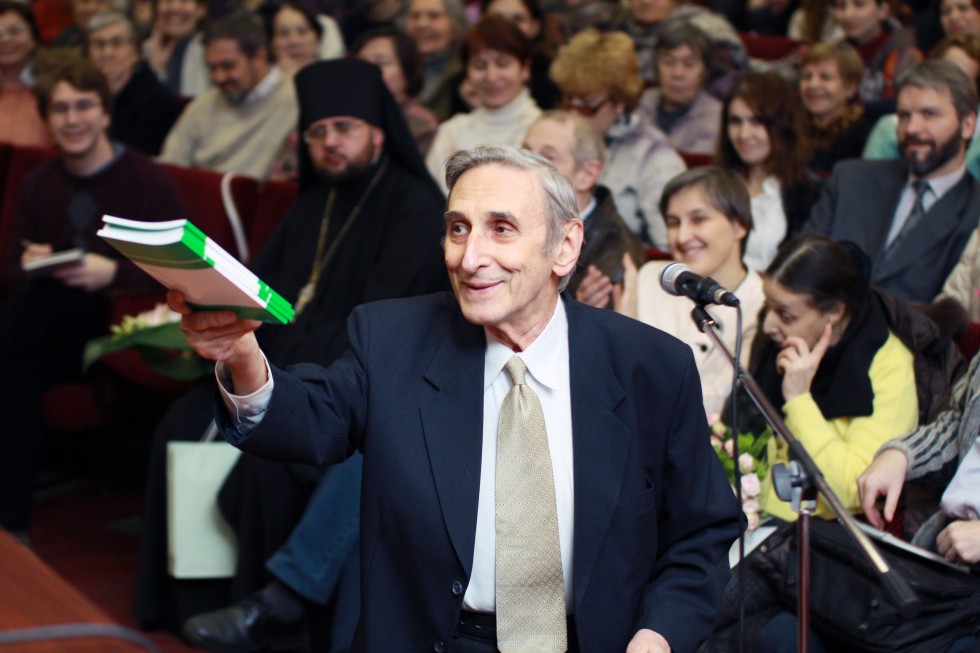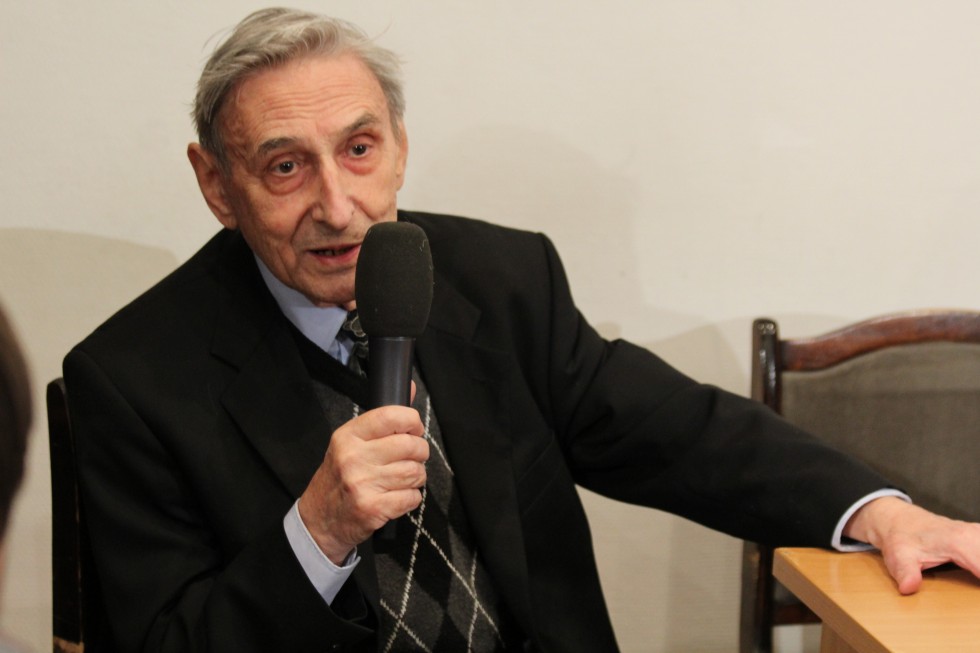“Anatoly Andreyevich Krasikov: Carrier of the Gene for Christian Public Life”

Anatoly Andreyevich Krasikov at St. Philaret’s Institute Commencement Celebrations
On the 21 of May, in his 89th year of life, Professor Anatoly Andreyevich Krasikov, an SFI Trustee, Russian political scientist, journalist, government activist, historian and religious studies expert, passed away at his dacha in the Moscow suburbs.
“This is a great loss for us,” said SFI Vice Rector and Chairman of the Transfiguration Brotherhood, Dmitry Gasak. “He was a good friend of our Institute and of one mind with all that Fr. Georgy Kochetkov and our whole brotherhood are doing within the church and society. He always supported us at every opportunity and in every way he was able to. His compassion for the revival of church life in Russia was both authentic and fruitful.”
The first Soviet correspondent accredited by the Patriarchate, he reported on the work of Vatican II; Anatoly Krasikov was head of the TASS news agency in Rome from 1959 to 1964, in France from 1966, and from 1978, the agency’s Deputy General Director.
When he returned from Italy in the mid 1960’s, he prepared his dissertation on the Vatican II Council and passed exams for his PhD candidacy at Moscow State University. Learning, however, that a “clear and militantly atheistic text” was expected at his defence, he refused the degree. In 1990, having spent many years studying the Spanish experience of a peaceful transition from Franco’s dictatorship to democracy, Anatoly Andreyevich defended his doctoral dissertation on this subject in the field of the History of International Relations.
But the primary theme of his research and academic publication was the role of religion in Russian, European and world politics. He associated his great interest in the history and culture of Europe with his time at MGIMO, when he attended the lectures – always to a packed lecture hall – of “old school” academic Yevgeny Viktorovich Tarle.
“Anatoly Andreyevich was one of a very few people in modern Russia who really belonged to Christian public life – a phenomenon which was much spoken of at the beginning of the 20th c., but which we hear almost nothing of now,” added Gasak. “In my view, Anatoly Andreyevich carried Christian public life within himself. Christian unity was an issue in which he took a live interest. Despite the fact that he worked in a position which presupposed rigid ideological obedience to the Soviet government, he was a Christian believer and an authentic Orthodox Christian person, who was both attentive and open. Whenever we would meet at various conferences in Europe or here in Russia, it was clear that a diverse range of people valued and respected him – from representatives of lay Christian movements to high-ranking officials of the Vatican. His death is yet another sign of the passing not only of the 20th c., but of the post-Soviet “thaw” of the 1990s and the early 2000s – that era which is associated with the inspiration of freedom.”
For 10 years, from 1978 to 1988, Anatoly Krasikov was in charge of media related to the celebration of the 1000th anniversary of the Baptism of Rus, and in the 1990s he became one of the founders of the Russian Presidential Advisory Council for Cooperation with Religious Associations.
“As is well-known, one never has many friends, and he was an authentic friend, and we could always sense that friendship,” shared Gasak. “He was one of few people in Russia who really understood what Christian politics is, he understood church-society relations, and he helped and advised us and gave us introductions, understanding that this side of life is also important for such a lay Christian movement within the Russian Orthodox Church as the Transfiguration Brotherhood.”
Anatoly Andreyevich remembered the beginning of our friendship himself, when he congratulated SFI upon its 30th anniversary, saying “My first meeting with the “St. Philarets crowd” was many years ago. During Soviet times there was a Mariners’ Museum at the Church of the Dormition of the Theotokos in Pechatniki. Having returned from abroad, where we had seen many interesting churches, my wife, Nadezhda Stepanovna, and I, decided to visit various churches in Moscow, when there were but a few. We learned that on the site of the former Mariners’ Museum the church was to open its doors. We went to that church and were introduced to the community, many of whom to this day are teachers and employees of St. Philaret’s Institute. This first meeting, fortunately, turned out to be but one of many. I was honoured to chosen a Trustee of the Institute, where I met many colleagues.”
Upon retiring from government service in 1996, Anatoly Andreyevich began to work at the Russian Academy of Sciences Institute of Europe, where until 2016 he headed the Centre for the study of Society and Religion. From 1997-2003 he was the President, and from 2004 President Emeritus of the Russian office of the International Association for Religious Freedom.
“If public life in our country is not ultimately to lose its Christian foundations, then the professional and personal experience of Anatoly Andreyevich will without a doubt be needed,” concluded Dmitry Gasak.
We shall cherish the memory of our friend Anatoly Andreyevich Krasikov!

Anatoly Andreyevich Krasikov at a commemorative evening for Fr. Vitaly Borovoy at St. Philaret’s Institute, 25 January, 2016
